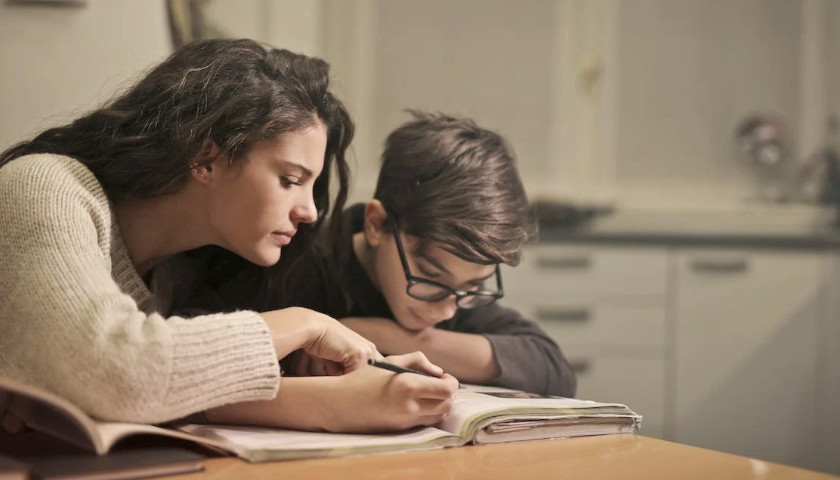by Heather Carson
This year I will graduate my first homeschooler. It seems like only yesterday I was teaching our oldest child to read, and now she’s an adult taking college courses. For the last 14 years I’ve been knee-deep in educating our eight children, recently as many as five grade levels at a time, in a one-room schoolhouse style approach. Sometimes it has felt more like being in the trenches—overwhelming and chaotic—but as my older children daily demonstrate, homeschooling is a great way to educate children and grow them into intelligent, connected, focused, happy adults.
Indeed, across the board, homeschoolers perform better than their public-schooled counterparts. For example, homeschoolers often score 15 to 25 percentile points higher than public-schooled students on standardized tests. Homeschoolers are also better adjusted socially, emotionally, and psychologically; they experience less abuse; and they are more politically tolerant. Why is this?
Prioritization of Family Relationships
From day one, my relationship with each one of my children has been front and center in the homeschooling day. If there’s conflict, it must be dealt with in order to move forward. If I lack patience—an oft-heard objection to becoming a homeschooling parent—then it’s up to me to develop my own character so I can teach my children without getting angry when we hit a roadblock. Every day we deal with differences in opinions, personalities, and learning styles; and we’re highly motivated to work out any problems because learning can’t take place otherwise, we love each other, and, after all, we’re family.
Character and the development of virtues has, by far, been one of the highest priorities of our daily routine, both for myself and my children. All of this contributes to strengthening the bond between us as we do life together. As my father-in-law was fond of saying, “Relationships are the continuity of shared experiences.” For me, my relationship with my children is as important a subject as reading, writing, and arithmetic as we experience our daily routine.
Individual Education Plan
One of the fun aspects of having such a large family is the diverse display of learning styles and interests among my children. What works for one child may not for another, and the beauty of homeschooling is that I’m not locked into one particular curriculum. Murray Rothbard, the American economist, stated in his book Education: Free and Compulsory:
“Since each person is a unique individual, it is clear that the best type of formal instruction is that type which is suited to his own particular individuality. Each child has different intelligence, aptitudes, and interests. Therefore, the best choice of pace, timing, variety, and manner, and of the courses of instruction will differ widely from one child to another.”
This insight has been very freeing for us. While our overall ideological approach is that of classical education, the pace at which we learn or what particular aspects of a given subject we focus on has been guided by the interest of each particular child. The result is an education that is well-rounded, individually suited, and, frankly, more engaging and fun.
Freedom to Go Deep
I have found that one key aspect to a very good education is the option to slow down. Deep comprehension cannot necessarily be measured by standardized tests and grade point averages. Where achievement of good grades is the main focus, the depth of knowledge is shallow. Education that does not focus on tests and grades is free to emphasize true depth of knowledge and understanding. My children have time to sit and think about subjects that interest them. They may go away and ponder and come back later and ask another question as they grapple with whatever subject or idea they’re wrestling with.
As their parent and teacher, I am available all day long to guide, discuss, and witness their learning process in real time. What a privilege! It’s so exciting to see one of my children go from questioning to understanding to mastery of an idea without the pressure to display superficial comprehension in order to gain a meaningless accolade such as a grade.
As my high school–aged children prepare to complete their official home education, I can see that their love of learning is a deeply ingrained part of their identity. They know how to learn and pursue their interests with the confidence that comes from having a strong and steady foundation of family, faith, and nourished curiosity. I credit this to homeschooling.
– – –
Heather Carson is a contributor to Intellectual Takeout.








